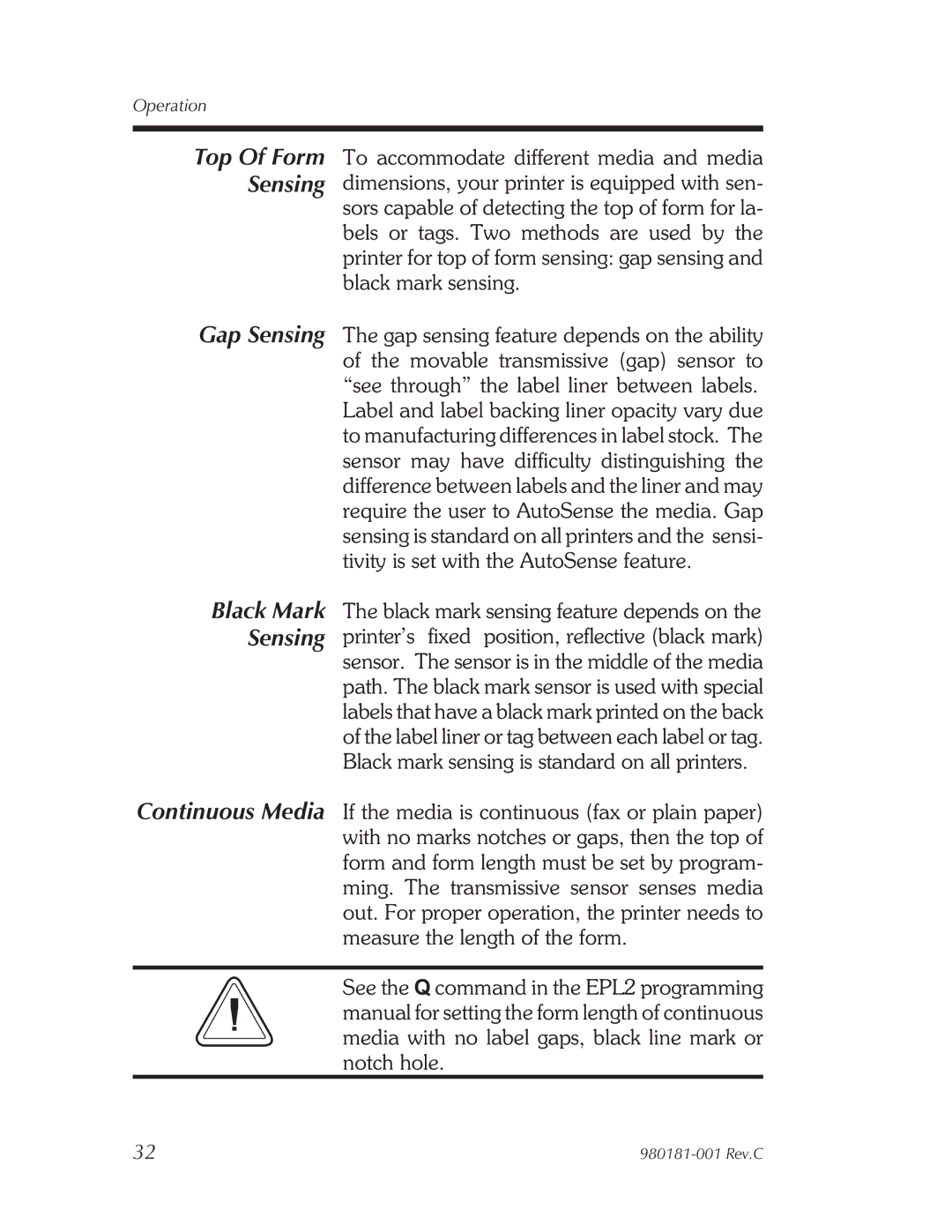
Operation
Top Of Form Sensing
To accommodate different media and media dimensions, your printer is equipped with sen- sors capable of detecting the top of form for la- bels or tags. Two methods are used by the printer for top of form sensing: gap sensing and black mark sensing.
Gap Sensing The gap sensing feature depends on the ability of the movable transmissive (gap) sensor to “see through” the label liner between labels. Label and label backing liner opacity vary due to manufacturing differences in label stock. The sensor may have difficulty distinguishing the difference between labels and the liner and may require the user to AutoSense the media. Gap sensing is standard on all printers and the sensi- tivity is set with the AutoSense feature.
Black Mark Sensing
The black mark sensing feature depends on the printer’s fixed position, reflective (black mark) sensor. The sensor is in the middle of the media path. The black mark sensor is used with special labels that have a black mark printed on the back of the label liner or tag between each label or tag. Black mark sensing is standard on all printers.
Continuous Media If the media is continuous (fax or plain paper) with no marks notches or gaps, then the top of form and form length must be set by program- ming. The transmissive sensor senses media out. For proper operation, the printer needs to measure the length of the form.
See the Q command in the EPL2 programming manual for setting the form length of continuous media with no label gaps, black line mark or notch hole.
32 |
